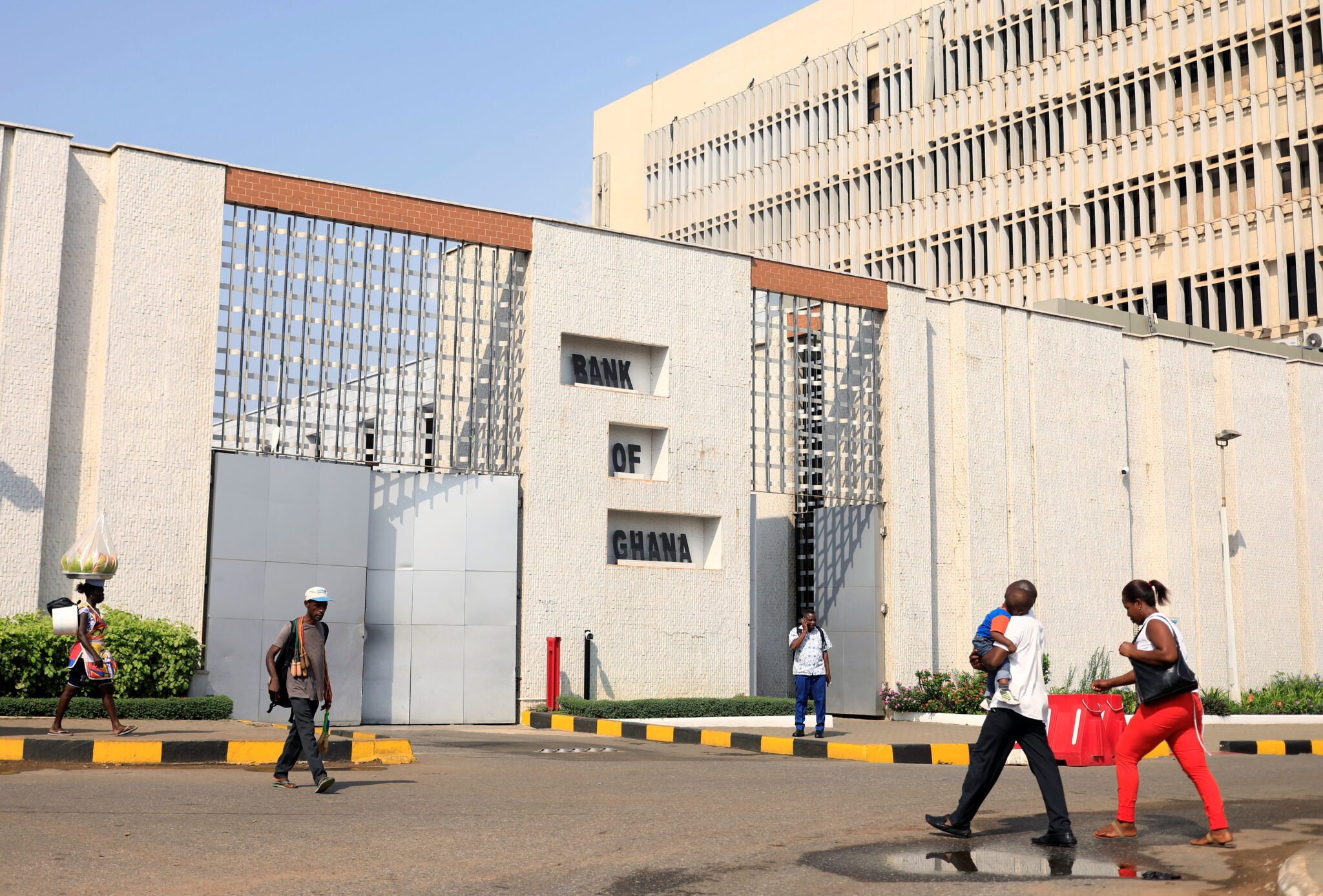
ACCRA, July 26 (Reuters) – Ghana’s central bank held its main interest rate steady at 29% for the third meeting in a row on Friday, saying a strong monetary stance was needed due to uncertainty over the inflation outlook.
Economists polled by Reuters before Friday’s announcement predicted a 50-basis-point cut in its main rate. They expect Ghana to finish the year with interest rates 200 basis points lower.
“Even though inflation is expected to remain within the target year band, the risks have tilted slightly on the upside,” Bank of Ghana Governor Ernest Addison told a news conference.
“This will require maintaining a strong monetary policy stance, supported by strong fiscal consolidation efforts,” Addison said.
He added that there was some uncertainty regarding the inflation path for the year given the recent exchange rate pressures, upward adjustment in utility tariffs, and increases in export fuel prices.
Ghana’s consumer inflation slowed last month to 22.8% year on year in June from 23.1% in May, but it remains well above the central bank’s 8% target with a margin of error of 2 percentage points either side.
Finance minister Mohammed Amin Adam said on Tuesday the West African nation would be able to reach the target for the year of 15% by the end of 2024, adding that its economy was rebounding faster than expected.
“The central bank is clearly reacting to the stalling disinflation during the first half of 2024, which has put both its short- and medium-term inflation targets at risk,” said Leslie Dwight Mensah, economist and research fellow at the Institute for Fiscal Studies in Accra.
“The decision has also been made with an eye on the cedi exchange rate, which has had a bad run in recent months and remains prone to depreciation given the economy’s limited foreign financing options,” Mensah said.
The West African cocoa, gold and oil producer has been restructuring its $30 billion debt in an attempt to emerge from its worst economic crisis in a generation.
Central bank governor Addison said economic activity in Ghana remained resilient in the context of a generally tight policy stance.
Ghana’s trade balance improved in the first half of the year, driven by higher exports of gold and crude oil, he said.
Strong gold output, and soaring prices helped Ghana earn more from the precious metal in the first half of 2024.
“The value of gold exports increased by 46.4% to $5.04 billion, while earnings from crude oil increased to $2 billion from $1.7 billion in the same period last year,” Addison said.
(Reporting by Christian Akorlie, additonal reporting by Maxwell Akalaare Adombila Writing by Anait MiridzhanianEditing by Bate Felix, William Maclean and Ros Russell)

